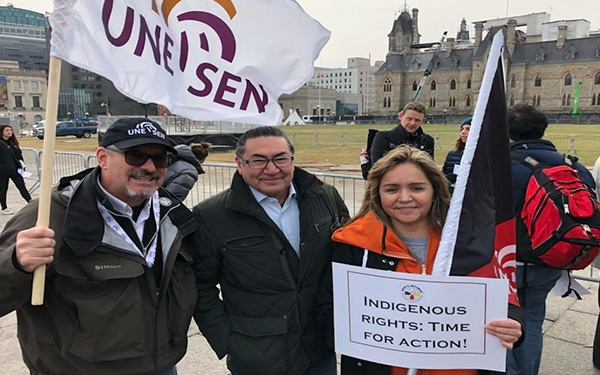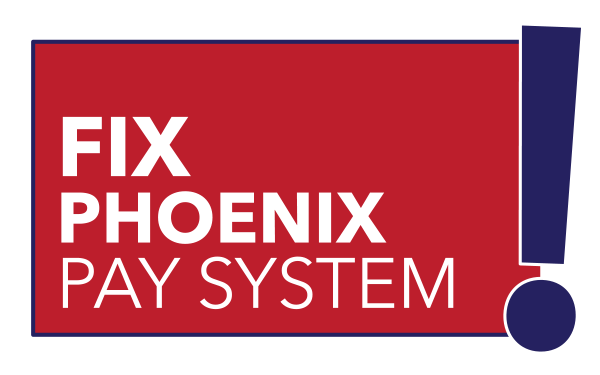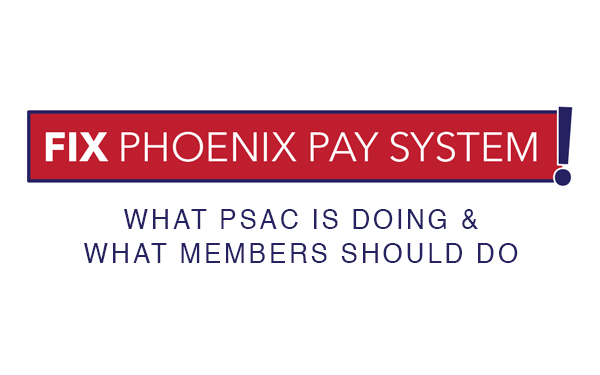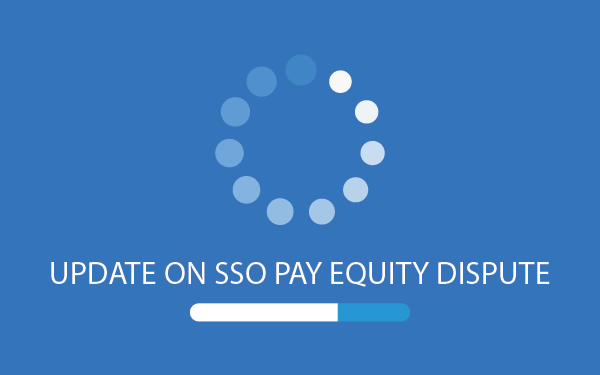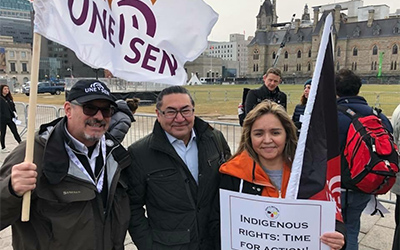
Bill C-262, An Act to ensure that the laws of Canada are in harmony with the United Nations Declaration on the Rights of Indigenous Peoples, is a fundamental piece of legislation. Bill C-262 ensures that the laws of Canada respect the UN Declaration on the Rights of Indigenous Peoples. This bill addresses an essential issue, Indigenous human rights. The sponsor of the bill, MP Romeo Saganash, worked with the United Nations for 23 years, negotiating the Declaration on the Rights of Indigenous Peoples:
“Bill C-262 […] also allow[s] us to begin to redress the past wrongs, the past injustices that were inflicted on indigenous people. This is the main objective of Bill C-262, to recognize that on one hand they are human rights but on the other hand that we begin to redress the past injustices that were inflicted on the first peoples of this country.”
“The long journey of reconciliation involves recognizing fundamental Indigenous human rights and Bill C-262 shows us why we need to implement these international standards” explains National Equity Representative for Aboriginal Peoples Ruby Langan.
Ruby has been promoting this bill across the country and coordinated three rallies in late 2017, two of which were in Ottawa as well as one in Vancouver. She had the opportunity to attend the debate in the House of Commons on December 5, 2017 and listened to Romeo Saganash’s speech on this important issue. “Being invited by the Office of MP Romeo Saganash to attend the debate on this bill was an honour and a moment of pride for all the work aboriginal activists and allies put into the awareness of this fundamental issue”.
“Bill C-262 is about human rights. Bill C-262 is about justice. Bill C-262 is about reconciliation”, explains MP Saganash. The government supports the bill. Committed to reconciliation with Indigenous peoples, the Prime Minister established a working group of Ministers to study laws regarding Indigenous peoples. The bill has gone through three readings in the House of Commons and is scheduled for the Senate. Bill C-262 is a long-term commitment to improve Canada’s Indigenous human rights legislation.
Ruby has demonstrated her tireless commitment to not just indigenous peoples, but her hope to educate union leadership, and the general public as well. Her accomplishments are to be well recognized by all of us at UNE.
